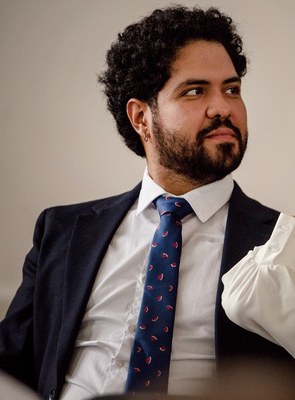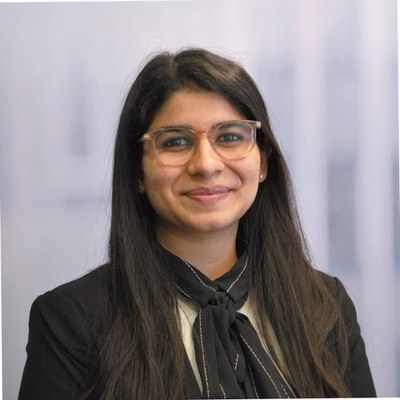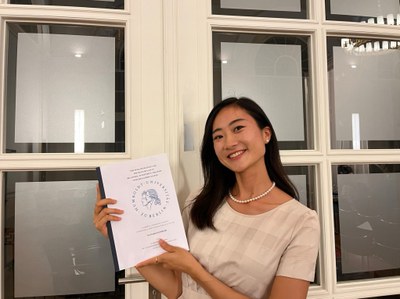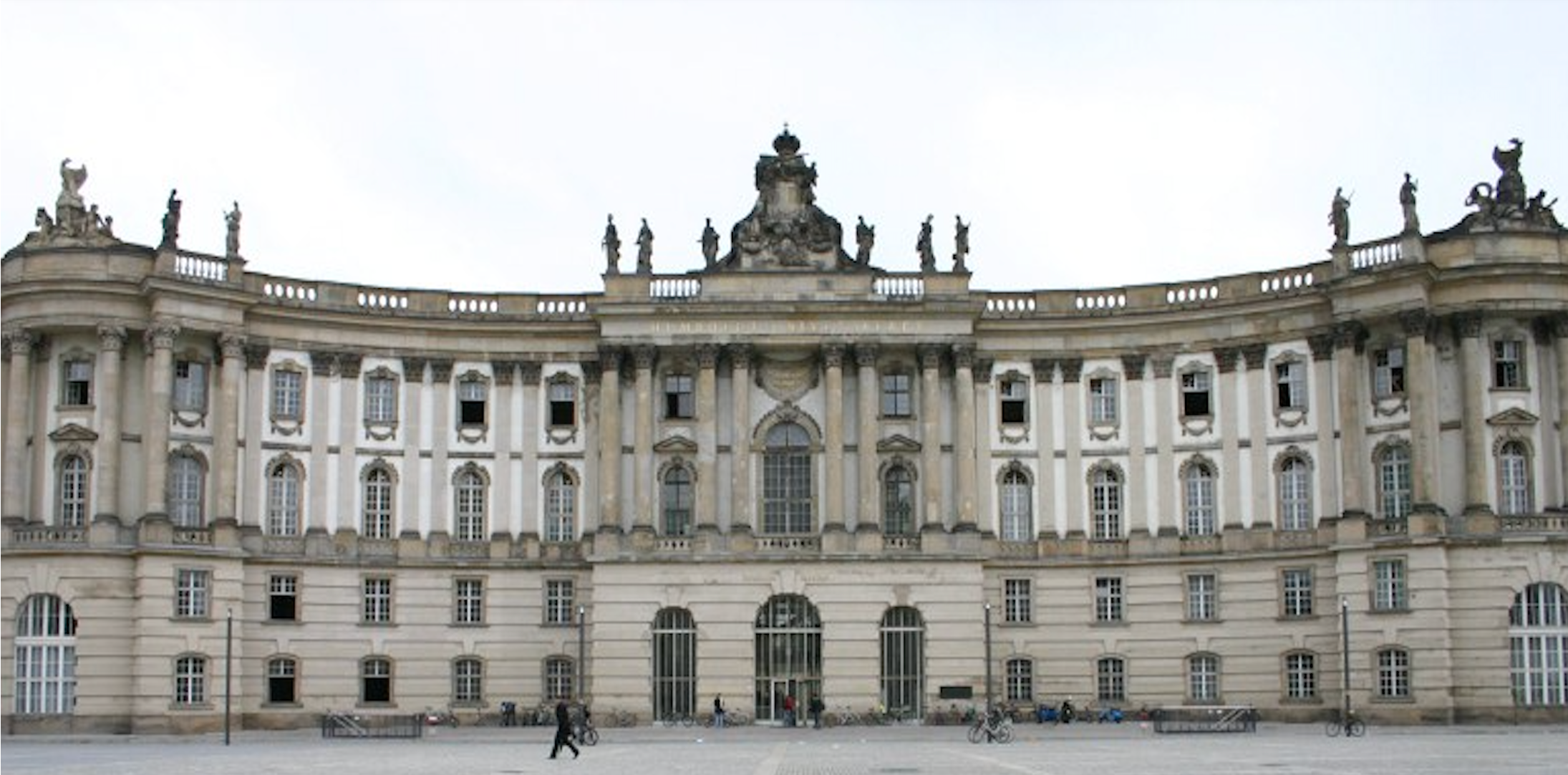Class of 2021/2022
João Vitor Candido Ferreira da Costa (Brazil)
João holds a bachelor’s degree and a specialization in civil procedural law, both from Universidade de São Paulo. He has been working in dispute resolution since his admission to practice law in Brazil, first at a full-service firm in São Paulo, and currently at a boutique firm in Berlin. João deeply values diversity and has racial equality as one of his main causes, a cause which allowed him to obtain a full scholarship from R.E.A.L. (Racial Equality for Arbitration Lawyers) to attend the Comprehensive Course on International Arbitration offered by Columbia Law School and CIArb NY Branch. He is also passionate about dance music and is a DJ and producer in his spare time.

1. Why have you decided to pursue a Master of Laws degree abroad?
The Brazilian arbitration practice is still closely linked to the litigation practice. Lawyers still carry part of the procedure of a court proceeding to arbitration, even though our Arbitration Act is very broad and does not provide for anything in this direction.
I then realized that, in order to get any practical insight into international arbitration, I would have to obtain experience from abroad. Also, I’ve always had a desire to live for some time in Berlin. This is why I decided to pursue the LL.M. in International Dispute Resolution at Humboldt.
2. How was the application process? Was it demanding?
The application process is not demanding in terms of effort, but it takes some time. The most time-consuming part of the process was drafting the letter of motivation in 2,000 characters. It took me months, with the help of a lot of friends, to reach the final version submitted with my application. Besides that, getting the letters of recommendation may also take some time depending on how busy your referees are. Overall, it was not an issue since I planned my application more than a year in advance, but I would suggest that future applicants reserve some considerable time for these two tasks.
3. What was the decisive reason for you to apply for the IDR LL.M. at Humboldt University of Berlin?
I believe there are three main reasons why one chooses to apply for a certain LL.M. program: (i) the program and the university, (ii) the budget, and (iii) the place. Each of these reasons has a different importance for every applicant; what matters to me within these factors may not matter to my colleagues.
Fortunately, in my case, HU’s IDR LL.M. program was optimal in all three factors. The program deals exactly with my area of practice and is very well structured, and the lecturers and the university itself are well renowned; the program’s tuition fee is considerably lower than its main competitors across Europe, and Berlin is a more affordable city than large international hubs such as London and Paris; and I had a personal desire to come to Berlin.
4. How did you feel about the atmosphere in the class?
The atmosphere in the class is fantastic. People were very friendly with each other all the time, and the integration was somewhat easy. I’m happy to say that I certainly made some friendships for life. It was also very interesting to watch the clash of cultures from all corners of the world in the same class.
5. How did you enjoy living and studying in Berlin?
Berlin is an amazing city in a lot of aspects and it has a lot to offer. It is truly a city that never sleeps – maybe partially on Sundays –, full of culture and history, and also of beautiful contradictions.
However, I must say that, coming from a tropical country, winter hit harder than expected, especially considering that lockdown restrictions were partially in force at the time.
On the other hand, spring and summer compensated for that and allowed me to explore the city to the fullest.
6. Do you think that the IDR LL.M. curriculum is demanding? How did you cope with the workload, considering the different mandatory modules, the master thesis, the optional internship and the practical workshops?
The curriculum is demanding but not impossible to manage. I took the program as a normal full-time job: I would reserve 6 to 8 hours a day to study, already counting the classes.
Specifically concerning the first semester I paired up with a friend and together we summarized all readings of the mandatory modules. This helped us a lot when preparing for the exams.
7. How is the workload distributed between the two semesters?
The first semester is a bit heavier than the second one. There are more mandatory modules and much more readings and preparation for the exams. The second one has only one mandatory module, but it also has the master thesis and the electives. I believe this is a good structure, because it leaves time for the students to focus on the thesis, which takes a lot of effort; and on their preferred electives in the second semester, which in general are not as demanding as the mandatory modules.
8. Which modules did you like the most and why?
All of them have their own peculiarities and were very enjoyable. In the first semester, investment law and private international law were very interesting because they were subjects somewhat unknown to me – Brazil is not included in the ISDS system and has its own structure concerning private international law rules. In the second semester, I pretty much enjoyed the written advocacy and oral advocacy classes, which show that soft skills are as – or even more – important than getting the facts and law right in the process of convincing the arbitrators.
9. Any highlights of the IDR LL.M. adventure in Berlin?
The boat party! After the exam in the second semester by the end of July, a friend and I organized a boat party to celebrate the conclusion of our studies with our classmates. Everybody attended, including the LL.M. coordination, and we enjoyed a boat ride in the Spree for about 3 hours with good music, drinks, and proper sun. I’m very glad to have helped organize the party and that it was a success with our colleagues.
10. How did you manage to do an internship and continue with the master thesis and exam preparation?
Time-management is key in the second semester. Drafting the master thesis requires discipline, and it is tempting to leave everything to the end and then having to rush to conclude it in time. Completing an internship and drafting the master thesis at the same time was hard in terms of time allocation, but the internship also allowed me to use the firm’s database to enhance my research. In general, I used any spare time in between tasks to look for articles and keep drafting my thesis. I also asked for a week off before the deadline so I could finish polishing the thesis and correct typos and references.
11. What are your plans for after the graduation and going into 2023?
For now, I have a full-time job as an associate at a boutique dispute resolution firm in Berlin, where I’ve been working mostly with arbitrator matters. It has been a very interesting and fulfilling experience. I’m looking forward to what lies ahead.
12. Would you recommend the IDR LL.M. to other young lawyers? Why?
Definitely! It was a life-changing experience for me in a lot of aspects: the academic experience, the friends for life I made, the job I got. All that in the city that I had been longing for.
I recommend the IDR LL.M. program to anybody who wishes to have a complete, wide-ranging life experience: academically, professionally, culturally, and, most of all, personally.
_____________________________________________________________________
Raashika Kapoor (India)
Raashika has a Bachelor of Laws/Bachelor of Arts (B.A.LL.B.) degree from India. Over the course of her studies (Bachelors and Masters), she worked as an intern in the field of dispute resolution with various law firms in India as well as with the arbitration teams at Gleiss Lutz and White & Case in Germany. She has been an avid mooter and has been associated with the Vis Moot, first as a participant and now as an arbitrator. Raashika was a class representative and also received a Best Student Award for her performance in the IDR LL.M. She is now looking forward to exploring and gaining further experience in arbitration.

1. Why have you decided to pursue a Master of Laws degree abroad?
The year I joined my undergraduate law school, I had decided that I would go abroad for an LL.M. I decided to pursue a Master of Laws degree abroad to gain exposure and broaden my horizon. I was inclined towards international law and hence, did not want to restrict myself in terms of learning opportunities. I felt it right to expose myself to education abroad and to meet and understand people and their perspectives, from all around the world. Moving outside of your comfort zone and taking responsibility for your affairs also instills a sense of independence, which I was seeking.
2. How was the application process? Was it demanding?
The application process for the IDR LL.M. was fairly straightforward. The application deadline is March 31st for the academic year beginning in October. The applications are sent through an online portal on the website. The primary documents that must be submitted are the application form, the letter of motivation and two letters of recommendation. While the process itself is not demanding, one needs to spend considerable time and energy to write the letter of motivation and secure two recommendations.
3. What was the decisive reason for you to apply for the IDR LL.M. at Humboldt University of Berlin?
The course at Humboldt covers the broad area of international dispute resolution with a strong focus on international arbitration, which is what I wanted to expose myself to and only a few schools offered that. The small class size of 25-30 students allows enough room for personal interactions and connections. It serves well in terms of the professor-student ratio. With a great geographical location, Germany provided enough opportunities to travel, both within the country and outside.
4. How did you feel about the atmosphere in the class?
The class atmosphere is very charged and welcoming. With students from so many different jurisdictions, at different stages of their professional careers, the class has an interesting blend of opinions and experiences. You would always leave the room learning something new.
5. How did you enjoy living and studying in Berlin?
To anyone who asks me this, I always say ‘Berlin grew on me!’ The first few weeks I was skeptical, but soon Berlin became home. From the people to the culture and the liberal atmosphere, Berlin has something to offer to everyone. You do not have to fit in, the city welcomes you.
Studying in Berlin has been great. The Grimm-Zentrum and the law faculty library are nice study spots. While I was writing my thesis Staatsbibliothek was my second home. Overall, living and studying in Berlin is very enjoyable.
6. Do you think that the IDR LL.M. curriculum is demanding? How did you cope with the workload, considering the different mandatory modules, the master thesis, the optional internship and the practical workshops?
In my opinion, the LL.M. per se is not too demanding. While I did find the readings in the first semester to be a little heavy, if one keeps track and makes notes in classes, it is manageable. The second semester is fairly more balanced with the thesis, internship and electives. The classmates, faculty as well as the administration are very helpful and it is possible to work things out together. The course structure is such that the workload is spaced out so one does not feel overburdened.
7. How is the workload distributed between the two semesters?
The first semester entails mandatory modules and guest lectures and is a little more academia-focused than the second semester. The second semester is a blend of electives, master thesis, internships and workshops. I would say the year is well-balanced and does not overburden the students.
8. Which modules did you like the most and why?
In the first semester, I really liked our classes on Public International Law and Specific Areas of Arbitration. The latter was taught by different practitioners working in various areas of arbitration, such as sports, energy, construction etc. Both these courses were very participative and discussion-based.
9. Any highlights of the IDR LL.M. adventure in Berlin?
I cannot put a number to the highlights of my IDR LL.M. adventures in Berlin. The aura of the university campus, the meaningful conversations with my classmates who became family, the flowing corridors of the law faculty, many informative and insightful discussions with professors, the beauty of the snow-covered law faculty, the lovely Christmas markets and the bubbling nightlife of Berlin, are a few things that flash before my eyes.
10. How did you manage to do an internship and continue with the master thesis and exam preparation?
I did an internship in March – which is also the spring break, between the two semesters. Master thesis wise, I was planning for March to be a lighter month, where I undertook preliminary research around my thesis topic and created a database for my research resources. After work or on weekends, I would collate my resources and plan the chapters. In my opinion, internship, master thesis and exams can be balanced well with some planning and sticking to a timetable/schedule.
11. What are your plans for after the graduation and going into 2023?
After doing two active internships in international arbitration, at Gleiss Lutz and White & Case, I realized that the field truly interests me. Going into 2023, I am inclined to further hone my skills and explore the various nuances of this field of law and immerse myself into practice.
12. Would you recommend the IDR LL.M. to other young lawyers? Why?
As a young lawyer who had recently graduated, the IDR LL.M. turned into one of the best and most enjoyable years for me. As the majority of the courses are taught by practitioners, one gets a first-hand account from persons in the field, about their journey, experiences, opportunities and challenges. The course is structured in a way that would allow you enough time and room for both personal and professional development. I would most certainly recommend the course to anyone who wants to delve into the field of international arbitration.
_____________________________________________________________________
Kanako Nannichi (Japan)
Kanako currently works at the Organisation for Economic Co-operation and Development (OECD) in Paris. Prior to starting the IDR LL.M., she gained work experience in finance in Singapore and London. Kanako studied law at Keio University in Japan and also at Lund University during her exchange year in Sweden. She has professional experience and interests in policy, international law, business and human rights.

1. Why have you decided to pursue a Master of Laws degree abroad?
I was ready for a career change, from finance to international law and from the private sector to the intergovernmental sector. My interests had always been in the intersection of business, human rights and law, and the COVID-19 pandemic gave me the opportunity to think about and reorient my priorities. Having grown up in Germany, I also always wanted to come back and build my career in Europe. The IDR LL.M. therefore provided me with the perfect platform to reach my ambitions.
2. How was the application process? Was it demanding?
It was straightforward. The application was a great way to organise my thoughts on my career ambitions. The enthusiasm of the admissions team to respond to inquiries with speed made the process easy to navigate as well.
3. What was the decisive reason for you to apply for the IDR LL.M. at Humboldt University of Berlin?
I have always been interested in the way multinational businesses operate and how they might be able to contribute to tackling inequalities. This is why I worked in finance in Singapore for two years to understand the drivers of private sector actors after having studied law in Japan. Studying dispute resolution mechanisms provided me with an alternative angle to understand what motivates multinational businesses.
4. How did you feel about the atmosphere in the class?
I enjoyed being part of a close-knit environment that provided a safe space where we could be stretched and challenged. We learnt from one another, engaged in debates on international law, and shared feedback on presentations. I also met some of my closest friends through the IDR LL.M. and I cherish every moment we shared.
5. How did you enjoy living and studying in Berlin?
I enjoyed every part of it. Humboldt is located in the centre of Berlin, which meant I could easily access art, culture and music. I used to pass many historical buildings – from the Brandenburger Tor to the Reichstag – during my morning runs and would occasionally treat myself to a classical concert at the Berlin Philharmonie for just 10 euros thanks to a student discount.
6. Do you think that the IDR LL.M. curriculum is demanding? How did you cope with the workload, considering the different mandatory modules, the master thesis, the optional internship and the practical workshops?
I liked the rigour that the curriculum demanded and a weekly study group with a few of my close friends made the studies a rewarding experience. While we spent countless hours together reviewing materials and grilling each other, we also celebrated small wins over Aperol Spritz and cooked our home countries’ dishes together. It’s the fun outside the classroom that helped me navigate through the intensity of the workload.
7. How is the workload distributed between the two semesters?
The first semester is academically rigorous, with different modules to build a foundation in arbitration and international law. The second semester has more flexibility to explore your interests more deeply. There are a variety of elective courses that you can choose from to develop specific skills and you have the chance to develop expertise through your master thesis. I had the opportunity, for instance, to take a negotiation class, where I learnt how to develop options that are strategic and mutually beneficial. Given that we had fewer classes in the second semester, I was also able to allocate time to researching for my master thesis and an internship.
8. Which modules did you like the most and why?
International investment law and arbitration. Learning about the legal framework that governs foreign investments, which serve as the driver of economic development, and the mechanism for investors to file a claim against a state was fascinating. This is why I decided to write my master thesis on the spillover effects of bilateral investment treaties.
9. Any highlights of the IDR LL.M. adventure in Berlin?
From going for a cup of Glühwein at the Christmas market to maximizing the one cup one euro deal during ice cream week, we went on a lot of adventures all around Berlin. If I were to choose one highlight, it would be the dinner I had with several close friends the night before the graduation ceremony. For the first time, I felt a twinge of melancholy and it made me realise how the IDR LL.M. had allowed me to connect with such incredible people.
10. How did you manage to do an internship and continue with the master thesis and exam preparation?
Two simple factors: passion and support. While concurrently doing an internship and writing a thesis was not easy to juggle, I thoroughly enjoyed my time. I had a lot of fun researching a topic I was passionate about for my thesis on bilateral investment treaties and working at the Organisation for Economic Co-operation and Development (OECD) had always been one of my career ambitions. All of this would not have been possible without my strong support network. I am truly grateful to have friends and family who encourage me to continue chasing my ambitions.
11. What are your plans for after the graduation and going into 2023?
I currently work at the OECD in Paris and I wish to continue working in the intergovernmental sector. I want to pursue my interests to promote human rights and tackle inequality by creating the right incentives and legal environments for businesses.
12. Would you recommend the IDR LL.M. to other young lawyers? Why?
Absolutely. If you want to be intellectually challenged, learn from the brightest classmates, and pursue a career in international law, this program is for you. Being part of a multinational yet small class also made the learning experience both intimate and diverse.
